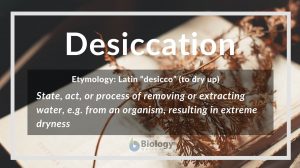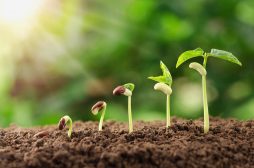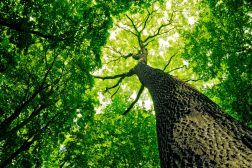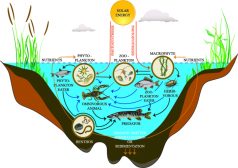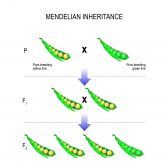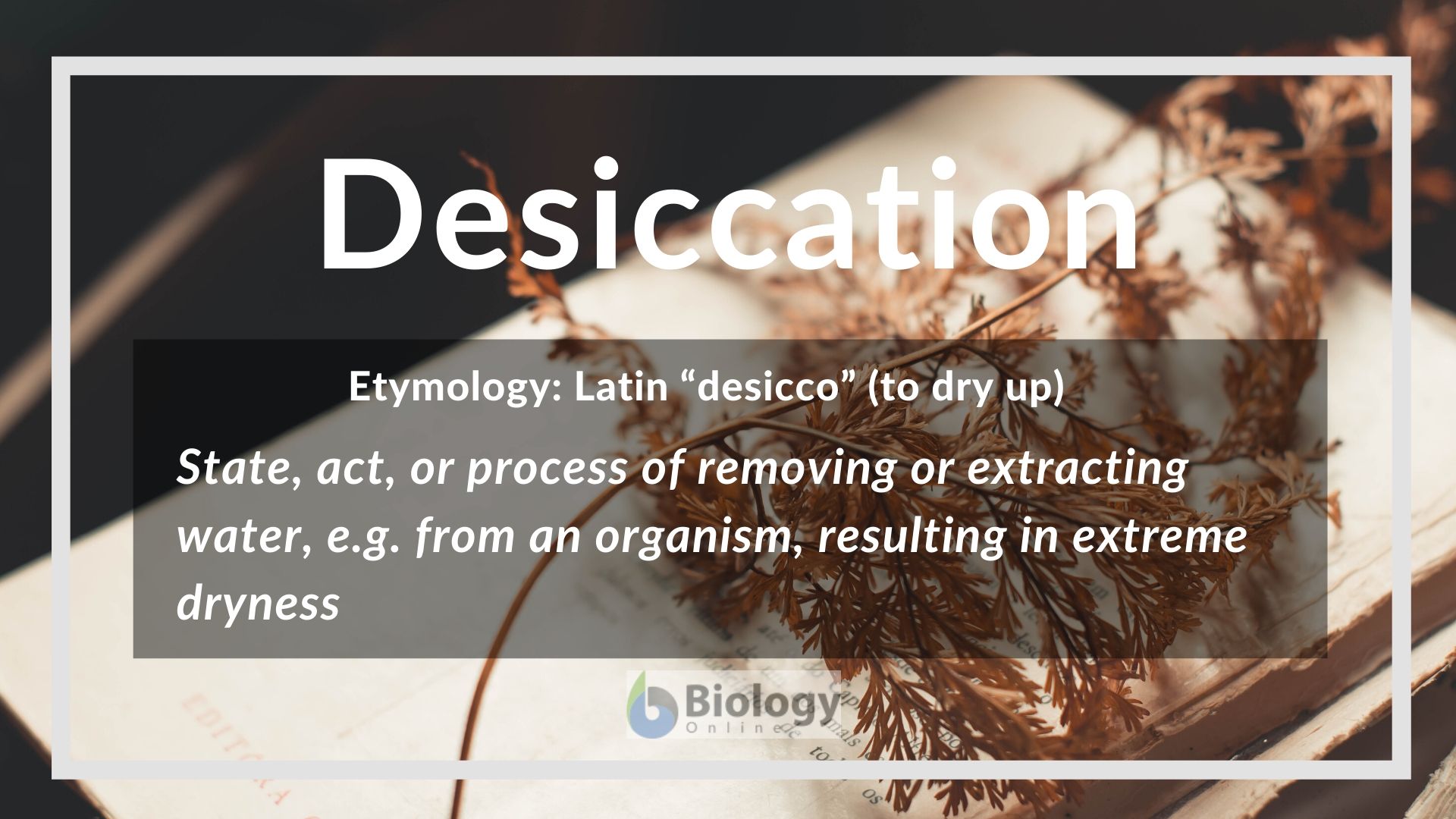
Definition of desiccation
Table of Contents
Desiccation definition
Desiccation refers to the state, the act, or the process of removing or extracting water content thoroughly resulting in extreme dryness. Related terms include “desiccate” (v., def: to the act of desiccating) and “desiccated” (adj., def: pertaining to desiccation or one that is dried by desiccation). Desiccation can be done by exposing, for instance, the organism, to a desiccant or a desiccator. A desiccant is a chemical substance that opposes the action of humectants that keep the moisture. Common examples of desiccants are silica gel, activated charcoal, calcium chloride, and calcium sulfate. They induce desiccation by adsorbing moisture. In the laboratory, a vacuum desiccator is a glass or plastic container that aids in making or keeping materials dry.
Etymology: from Latin desicco, from dē-, meaning “of”; “from, away from” + siccō, meaning “dry up”.
Desiccation definition biology
In biology, desiccation is the drying out of an organism by removing water or extracting moisture. Some of its biological applications are drying of crops (agriculture), drying of newborn animals (especially, livestock animals) and killing susceptible organisms, such as certain bacteria. In the absence of water surrounding the cell, the water molecules tend to leave the cell by osmosis through the aquaporins on the cell membrane. Water, then, evaporates into the atmosphere. This is what occurs when an aquatic organism is taken out of their habitat or when a vulnerable organism is exposed to a desiccating agent, such as earthworm that is exposed to salt.
Susceptibility to desiccation varies. Many viruses are fairly resistant to desiccation. Some bacteria are not completely susceptible and may remain viable; they can become active when water becomes available again. An example is Mycobacterium tuberculosis that may survive for several months. (Ref.1)
Desiccation in plants
In plants, water is important to sustain life. Land plants, in particular, absorb water from the soil through their roots. Without water, they become wilted and prolonged lack of water leads to death. Their cells become flaccid at first and then plasmolyzed as water efflux intensifies. This is what happens when plants are exposed to too much sunlight or drought. Plant desiccation may also be induced, such as when the plant is intended to be preserved and kept as specimen.
What does desiccated means in medical terms?
In medicine, the word “dessicated” pertains to that which is kept dry. Pharmaceutical drugs and supplements are manufactured by keeping them dry. Dessicated medical products have longer shelf life as moisture may spoil them. (Ref.2)
See also
- Dessicant
- Osmosis
References
- Chapter 7: Control of Microbial Growth. (n.d.). http://www.lamission.edu/lifesciences/lecturenote/mic20/Chap07Control.pdf
- Shiel, W. C. (2018, December 11). Medical Definition of Desiccate. MedicineNet; MedicineNet. https://www.medicinenet.com/script/main/art.asp?articlekey=12515
©BiologyOnline. Content provided and moderated by BiologyOnline Editors.
